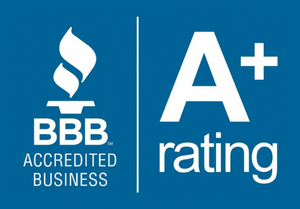The main goal of workers compensation investigations is to prevent fraud. These investigations seek to confirm or deny the legitimacy of workers’ comp claims by looking into whether the injury is legitimate and if the person qualifies for benefits. However, some insurance companies may use these investigations as a way to lower or deny claims. The aim of a workers’ compensation investigation is to establish if you have sustained a work-related injury/illness, and whether you are returning to work while receiving benefits.
More often than not, insurance companies will hire private investigators with expertise in this domain for these sorts of cases. Other insurance firms employ their own internal unit of investigators to investigate possible fraud allegations. A workers’ compensation inspector would examine if the complaint is fraudulent or exaggerated. The investigator may gather information and facts that suggest you are not genuinely hurt.
The investigator could also try to establish that your injury is not as grave as you allege. For example, workplace surveillance footage may show that you did not suffer any injuries during the alleged accident. Furthermore, surveillance footage at the gym might demonstrate you working out strenuously while claiming to have a severe back injury. Furthermore, we will also look for circumstances that weaken your argument that the injury occurred at work.
Let’s pretend you’re claiming you hurt your leg while working in construction. The investigator will talk to several people who were there to see if anyone has a different story about what happened. If multiple individuals say you got injured while riding a bike, the investigator assigned to your case would then conclude that the injury did not happen during work hours.
Investigators will try and find evidence suggesting you are still able to do labor-intensive tasks even with the reported injury; if they succeed, they’ll investigate whether or not you’re correctly declaring all of your income earned from working. Video surveillance is one way that investigators catch employees who are faking or exaggerating their injuries.
The camera may be hidden near your home, or the investigator might follow you around constantly. If you do something to cast doubt on your injury, investigators will likely be there to capture it in real-time. Video cameras are common in most health care settings. Investigators can easily get footage from these cameras since workers’ compensation insurance firms are generally in charge of selecting medical providers for injured workers. They’ll look at this video to see if a claimant displays any indicators of fraudulent injuries.
Social media monitoring allows investigators to keep track of what you’re doing on social networking sites and other internet platforms. They’ll check your status updates, postings, tagged photographs, and other online activities to see if you’ve been injured unlawfully. The insurance firm or your employer will be notified of any illegal injuries as a result of their investigation.
Interviews by investigators may be in-person or over the phone. You are not required to give them an interview under any circumstances. Accepting their interview, on the other hand, might aid your case if you have work-related injuries. Your friends and family members may provide crucial details about your injury. Investigators can speak with your relatives, close friends, neighbors, and coworkers as part of their investigation. An investigator can use this data to look for inconsistencies or indications of fraud potential.

